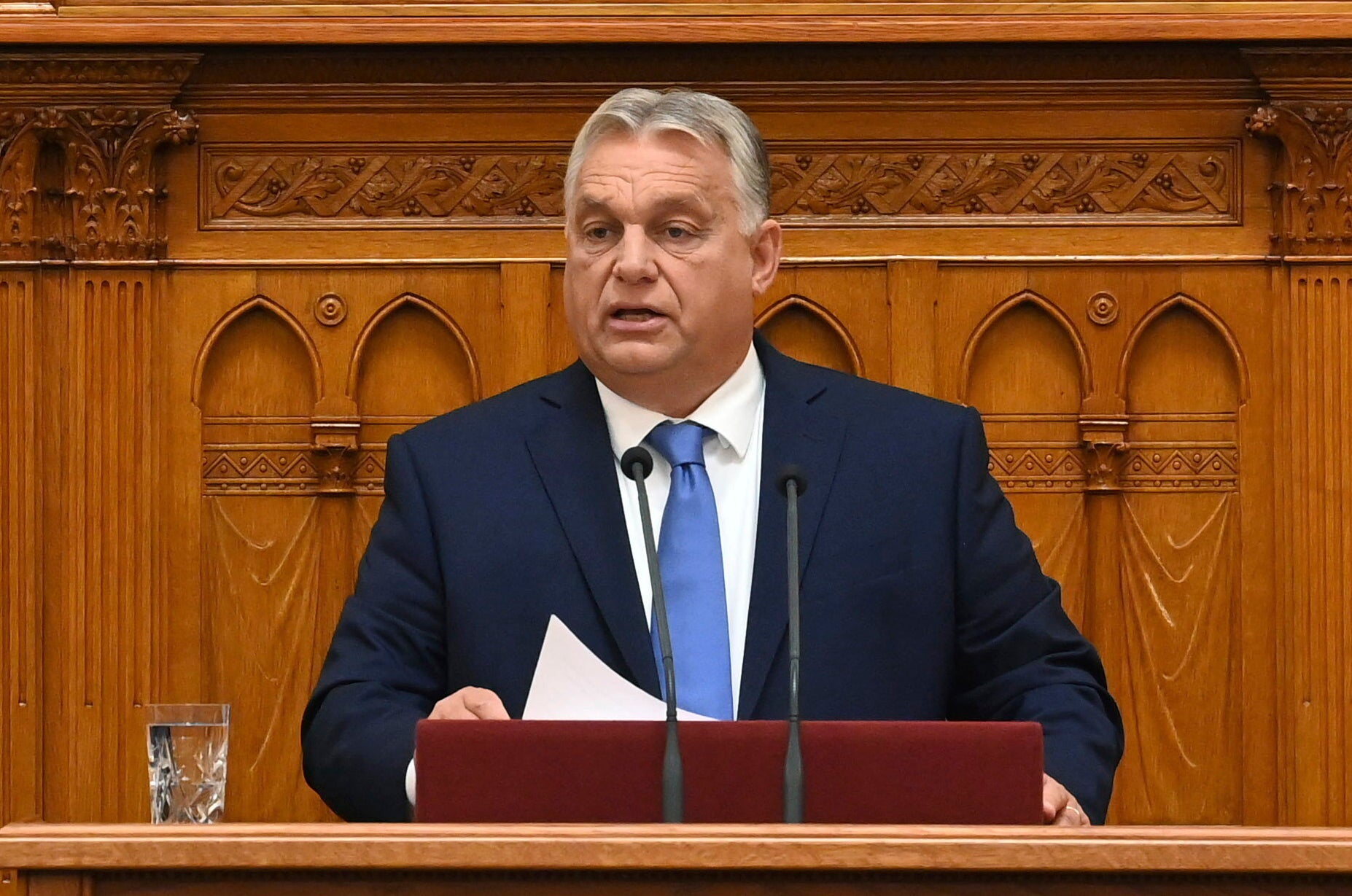Hungary's Orbán casts doubt on European Union accession talks for Ukraine
Hungarian Prime Minister Viktor Orbán has cast doubt on the prospect of the European Union beginning negotiations any time soon for Ukraine to join the bloc

Your support helps us to tell the story
From reproductive rights to climate change to Big Tech, The Independent is on the ground when the story is developing. Whether it's investigating the financials of Elon Musk's pro-Trump PAC or producing our latest documentary, 'The A Word', which shines a light on the American women fighting for reproductive rights, we know how important it is to parse out the facts from the messaging.
At such a critical moment in US history, we need reporters on the ground. Your donation allows us to keep sending journalists to speak to both sides of the story.
The Independent is trusted by Americans across the entire political spectrum. And unlike many other quality news outlets, we choose not to lock Americans out of our reporting and analysis with paywalls. We believe quality journalism should be available to everyone, paid for by those who can afford it.
Your support makes all the difference.Hungarian Prime Minister Viktor Orbán cast doubt Friday on the prospect of the European Union beginning negotiations any time soon for Ukraine to join the bloc, saying it was unrealistic to launch the accession process with a country that's at war.
Speaking to state radio, Orbán noted that unanimity among the EU's 27 member states is required to admit a new country into the bloc. In the case of Hungary, he said, the parliament would have to give the go-ahead to Ukraine, which has ambitions to join the EU within two years.
“When I'm in the chamber, I don’t feel the insurmountable desire for the Hungarian parliament to vote for Ukraine’s membership of the European Union within two years. So I would be careful with these ambitious plans,” Orbán said.
Ukraine was officially granted EU candidate status last year — an unusually rapid decision for the EU and its go-slow approach to expansion, prompted by the war in Ukraine. The European Council is expected to begin negotiations on Ukraine's accession in December.
Hungary, which has been sanctioned by the EU for alleged rule-of-law violations and corruption, has sparred with Kyiv over the rights of an ethnic Hungarian minority in western Ukraine. While it has admitted Ukrainian refugees and condemned Russia's invasion, it has — uniquely among EU countries — maintained close relations with Moscow and argued against supplying arms to Ukraine or providing it with economic assistance.
On Friday, Orbán said the EU “will have to answer very long and difficult questions until we get to the point where we can even decide whether to start negotiations.”
“When we are discussing the future of Ukraine in Brussels in the autumn, we will not be able to avoid the question of whether we can think seriously about the membership of such a country,” he said. “Can we start negotiations with a country that is in a territorial war? We do not know the size of this country’s territory since it is still at war, and we do not know what its population is, because they are fleeing. ... To admit a country without knowing its parameters would be unprecedented.”
On Monday, Orbán told the Hungarian parliament that his government would “not support Ukraine on any international issue” until the language rights of the Hungarian minority in western Ukraine are restored.